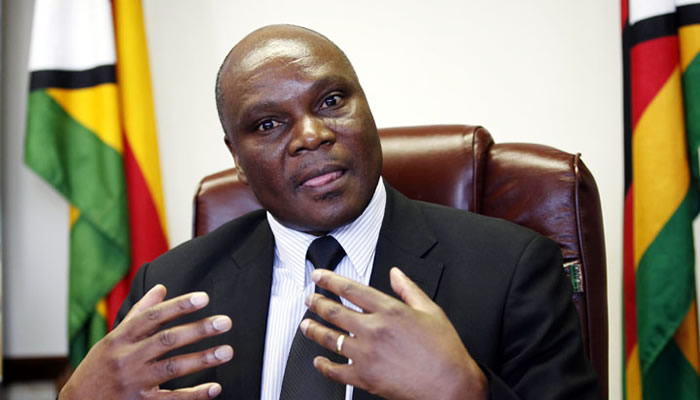By Phillimon Mhlanga
The Chamber of Mines expects government to conclude the review of the country’s mining tax regime by the end of 2017.

Miners argue that Zimbabwe’s various fees and levies make the country one of the most expensive countries to operate in, with an estimated 60 percent of every dollar earned in revenue going to government.
CoMZ chief executive officer, Isaac Kwesu, said in an annual report for 2016 released recently that the industry was supporting “the review process through provision of data and other technical information required by the Ministry of Finance and Economic Development”.
This, Kwesu said, was aimed at expediting the process.
“The fiscal landscape for the mining industry remained an issue of concern as the sector faced high ground rental fees, RDC (rural district council) levies, high EMA (Environmental Management Authority) charges and suboptimal royalty which remained non-deductible as a tax expense,” said Kwesu in his report.
Miners have raised concern over the current tax regime, saying a plethora of taxes and levies had affected viability.
Moreover, the sector was facing several challenges, among them depressed mineral and metal prices, high labour costs, capital and foreign exchange constraints and high energy costs.
Deputy Minister of Mines and Mining Development, Fred Moyo, confirmed that talks were currently taking place with miners but said he was not yet briefed on latest developments.
“Yes, there are discussions going on at the moment to try and rationalise the fiscal regime. But this is being driven by the Ministry of Finance and Economic Development. I haven’t received the latest report on how far they have gone, so I cannot say much at the moment,” said Moyo.
The Minister of Finance and Economic Development, Patrick Chinamasa, and his permanent secretary, Willard Manungo, were not available to comment.
In his 2017 national budget presentation, Chinamasa had indicated that government would “engage with the mining industry with regards to consideration and adoption of supportive interventions to ensure viability”.
He said the interventions would include review and standardisation of rural district council (RDC) fees and charges and further review of Environmental Management Agency (EMA) charges.
Under the existing laws, mining companies pay taxes to several government agencies such as EMA, Radiation Authority of Zimbabwe and the Zimbabwe Revenue Authority.
Local authorities and rural district councils also collect taxes from mining companies.
The various taxes and associated fees on the mining sector have meant that the fiscal regime, which includes mineral royalties, corporate income tax, additional profit tax and withholding tax, is among the most punitive in the world.
Royalty is calculated as a percentage of the gross market value of minerals produced.
Precious stones miners pay 15 percent of gross revenue in the form of royalties to government while gold miners pay five percent.
Platinum miners are paying 10 percent and the base metals and industrial minerals miners are paying two percent. Coal miners are paying one percent as royalty fees.
The royalty rates in Zimbabwe are considered to be higher than those in the region, making the country less attractive as an investment destination.
The discussions between miners and government come at a time when government is in the process of finalising amendments to the Mines and Minerals Act.
The draft Bill went through first reading in Parliament and the Ministry of Mines and Mining Development is in the process of incorporating stakeholders concerns. Financial Gazette






